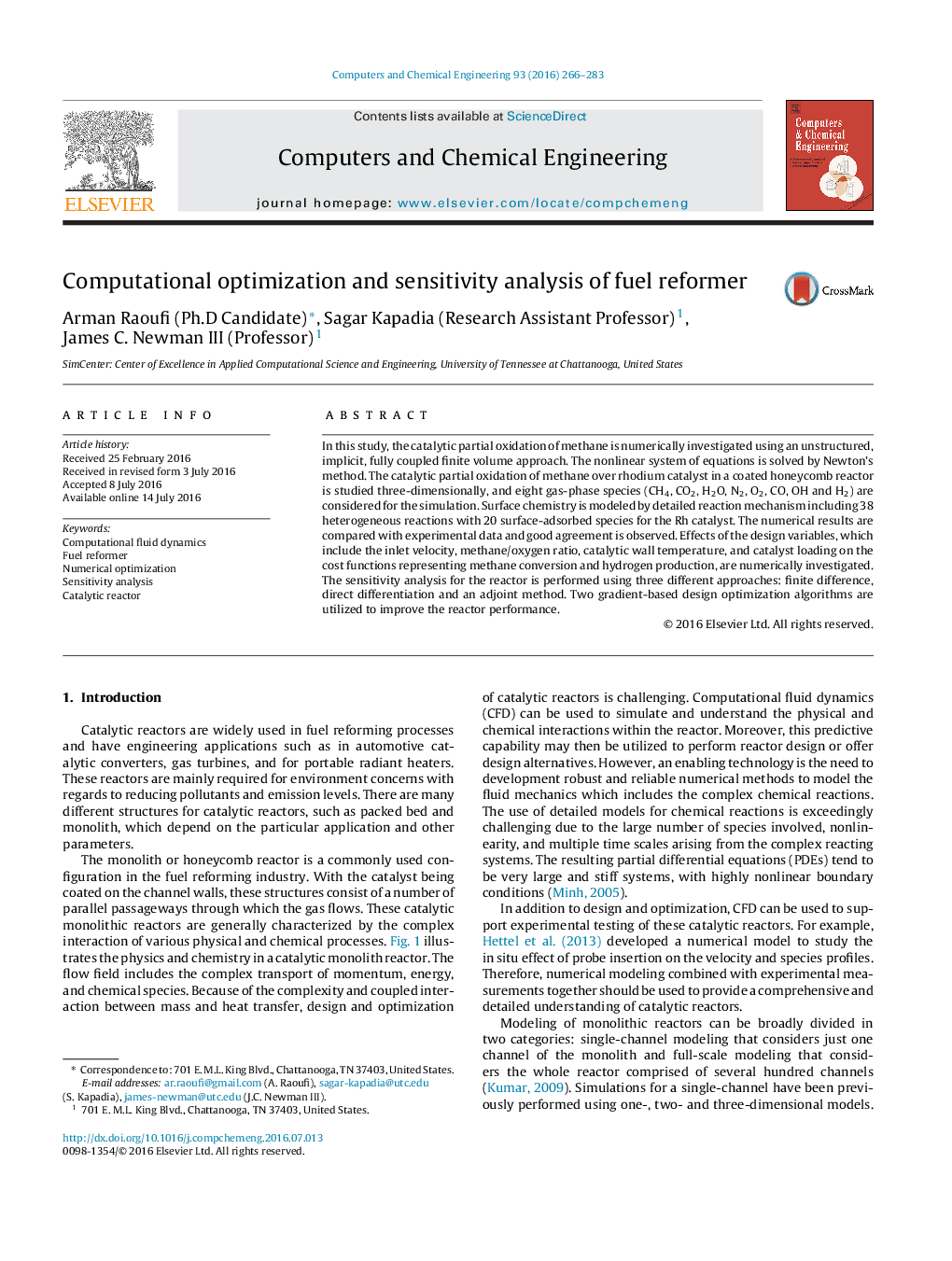| Article ID | Journal | Published Year | Pages | File Type |
|---|---|---|---|---|
| 171995 | Computers & Chemical Engineering | 2016 | 18 Pages |
•Fully coupled, implicit finite volume approach for modeling of methane reformers.•Sensitivity analysis for the reforming reactor using adjoint method.•Optimizing the performance of fuel reformers using the gradient-based algorithm.
In this study, the catalytic partial oxidation of methane is numerically investigated using an unstructured, implicit, fully coupled finite volume approach. The nonlinear system of equations is solved by Newton’s method. The catalytic partial oxidation of methane over rhodium catalyst in a coated honeycomb reactor is studied three-dimensionally, and eight gas-phase species (CH4, CO2, H2O, N2, O2, CO, OH and H2) are considered for the simulation. Surface chemistry is modeled by detailed reaction mechanism including 38 heterogeneous reactions with 20 surface-adsorbed species for the Rh catalyst. The numerical results are compared with experimental data and good agreement is observed. Effects of the design variables, which include the inlet velocity, methane/oxygen ratio, catalytic wall temperature, and catalyst loading on the cost functions representing methane conversion and hydrogen production, are numerically investigated. The sensitivity analysis for the reactor is performed using three different approaches: finite difference, direct differentiation and an adjoint method. Two gradient-based design optimization algorithms are utilized to improve the reactor performance.
